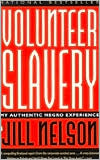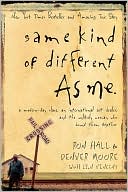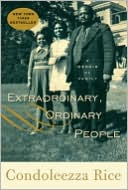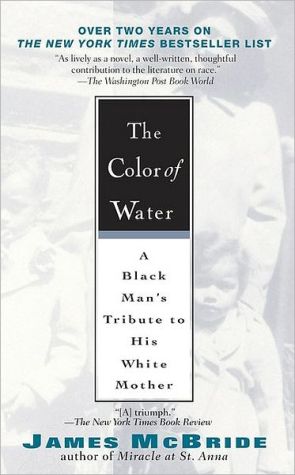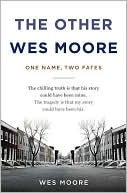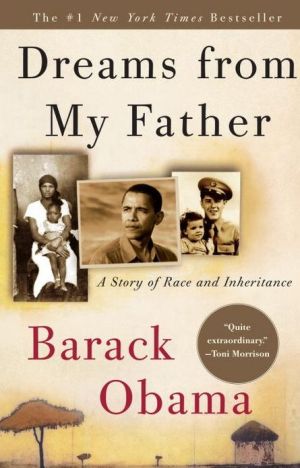Volunteer Slavery: My Authentic Negro Experience
When Jill Nelson became the first black woman to write for The Washington Post's prestigious Sunday magazine in 1986, she thought she had entered journalism heaven. Instead, she discovered that life at The Post meant walking "the thin line between Uncle Tomming and Mau-Mauing" - between holding onto her job and preserving her soul.\ As Nelson recounts her harrowing four years at The Post - along with her odyssey from a middle-class childhood to near poverty, divorce and single motherhood,...
Search in google:
When Jill Nelson became the first black woman to write for The Washington Post's prestigious Sunday magazine in 1986, she thought she had entered journalism heaven. Instead, she discovered that life at The Post meant walking "the thin line between Uncle Tomming and Mau-Mauing" - between holding onto her job and preserving her soul. As Nelson recounts her harrowing four years at The Post - along with her odyssey from a middle-class childhood to near poverty, divorce and single motherhood, flame-out love affairs, and a nervous breakdown - she gives us a scalding expose of the racial, sexual, and corporate politics of one of our most respected newspapers. Volunteer Slavery is a funny, fiercely candid book that names names and takes no prisoners.Publishers WeeklyNelson's entertaining, acid memoir centers on life at the Washington Post , where she worked from 1986 to 1990. A former Village Voice freelancer craving a steady paycheck for herself and her 13-year-old daughter, she became the first black and the first female writer at the paper's new Sunday magazine. Though she tried to walk ``the thin line between Uncle Tomming and Mau-Mauing,'' the magazine's inaugural issue outraged blacks with a column sympathizing with a local merchant's refusal to admit young black men to his store. Nelson was to face ``a daily assault on my integrity'' in a very white institution. Meanwhile, she provides tart cameos of patrician Post editor Ben Bradlee and neoconservative black writer Juan Williams, as well as of goings-on at gatherings of black journalists. She also candidly relates her own troubled love life, her fall into alcoholism after two years at the Post and the traumas in her bourgeois family (a mentally ill sister, a brother on drugs). Nelson's downfall at the Post began after she became a union activist and was, she maintains, improperly accused of forging a travel voucher; she resigned, after a near breakdown, two years later. A cautionary tale of corporate racial tension. First serial to Essence. (July)
\ Publishers Weekly - Publisher's Weekly\ Nelson's entertaining, acid memoir centers on life at the Washington Post , where she worked from 1986 to 1990. A former Village Voice freelancer craving a steady paycheck for herself and her 13-year-old daughter, she became the first black and the first female writer at the paper's new Sunday magazine. Though she tried to walk ``the thin line between Uncle Tomming and Mau-Mauing,'' the magazine's inaugural issue outraged blacks with a column sympathizing with a local merchant's refusal to admit young black men to his store. Nelson was to face ``a daily assault on my integrity'' in a very white institution. Meanwhile, she provides tart cameos of patrician Post editor Ben Bradlee and neoconservative black writer Juan Williams, as well as of goings-on at gatherings of black journalists. She also candidly relates her own troubled love life, her fall into alcoholism after two years at the Post and the traumas in her bourgeois family (a mentally ill sister, a brother on drugs). Nelson's downfall at the Post began after she became a union activist and was, she maintains, improperly accused of forging a travel voucher; she resigned, after a near breakdown, two years later. A cautionary tale of corporate racial tension. First serial to Essence. (July)\ \ \ \ \ Library JournalNelson writes of her experience as an African American woman working for one of the most prestigious newspapers in the country. Recruited in 1986 to write for the new Sunday magazine of the Washington Post , Nelson moved to Washington with both misgivings and hope. From the disastrous premier issue of the Sunday magazine that alienated and angered most of black Washington to her assignment covering the trial of Washington mayor Marion Barry, Nelson documents her growing sense of frustration and powerlessness. Interwoven with her professional story are her reflections on a lifelong struggle between her identity as an upper-middle-class black woman and her search for the ``authentic Negro experience.'' Mixing comedy with tragedy, Nelson raises questions about the meaning of success. Luckily, Nelson emerges as a survivor, and her story will entertain, enrage, educate, and engage the reader. Volunteer Slavery is highly recommended.-- Judy Solberg, Univ. of Maryland Libs., College Park\ \
